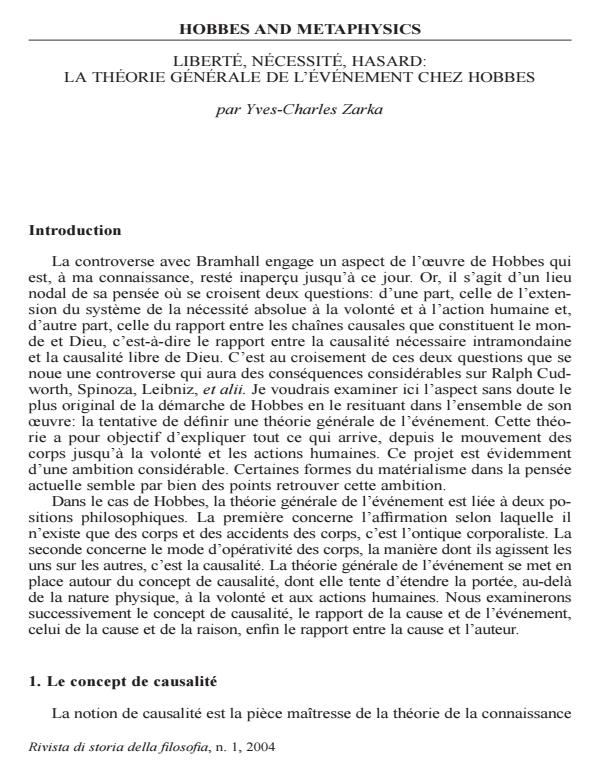Libertè, nécessité, hasard: la théorie générale de l'événement chez Hobbes
Titolo Rivista RIVISTA DI STORIA DELLA FILOSOFIA
Autori/Curatori Yves-Charles Zarka
Anno di pubblicazione 2004 Fascicolo 2004/1 Lingua Italiano
Numero pagine 13 P. Dimensione file 54 KB
DOI
Il DOI è il codice a barre della proprietà intellettuale: per saperne di più
clicca qui
Qui sotto puoi vedere in anteprima la prima pagina di questo articolo.
Se questo articolo ti interessa, lo puoi acquistare (e scaricare in formato pdf) seguendo le facili indicazioni per acquistare il download credit. Acquista Download Credits per scaricare questo Articolo in formato PDF

FrancoAngeli è membro della Publishers International Linking Association, Inc (PILA)associazione indipendente e non profit per facilitare (attraverso i servizi tecnologici implementati da CrossRef.org) l’accesso degli studiosi ai contenuti digitali nelle pubblicazioni professionali e scientifiche
Yves Charles Zarka seeks to show that Hobbes conceives of causes as events and that the progressive constitution of his theory of causality, from the Short Tract up to De corpore, introduces all elements required of a theory of event. Such a theory raises special problems as to the nature of rationality, theological foundations of a system of events and the status of politics in a physical universe governed by necessity. Some of those special problems include the well-known objections raised by Cudworth, Bramhall and Leibniz. Zarka stresses in particular the importance of the debate between Hobbes and Bramhall on liberty, necessity and chance in the formulation of those problems. One thesis of this paper is that such a theory of event can explain why Hobbes’s materialism can be changed, in his political thought, into its opposite.;
Yves-Charles Zarka, Libertè, nécessité, hasard: la théorie générale de l'événement chez Hobbes in "RIVISTA DI STORIA DELLA FILOSOFIA" 1/2004, pp , DOI: